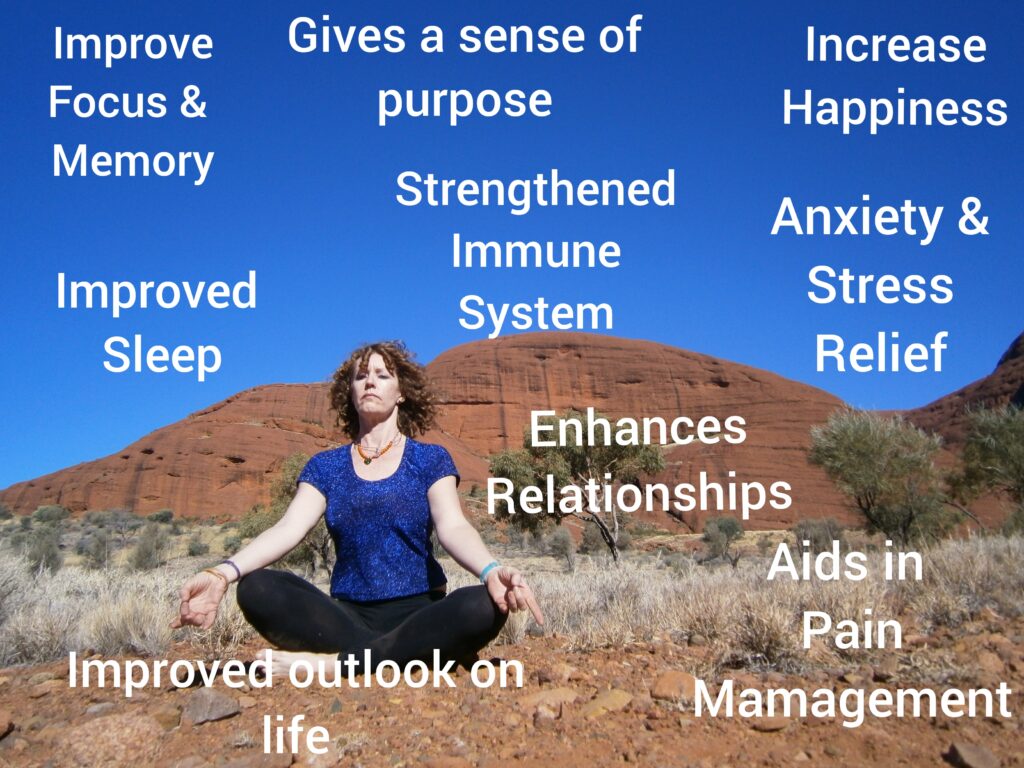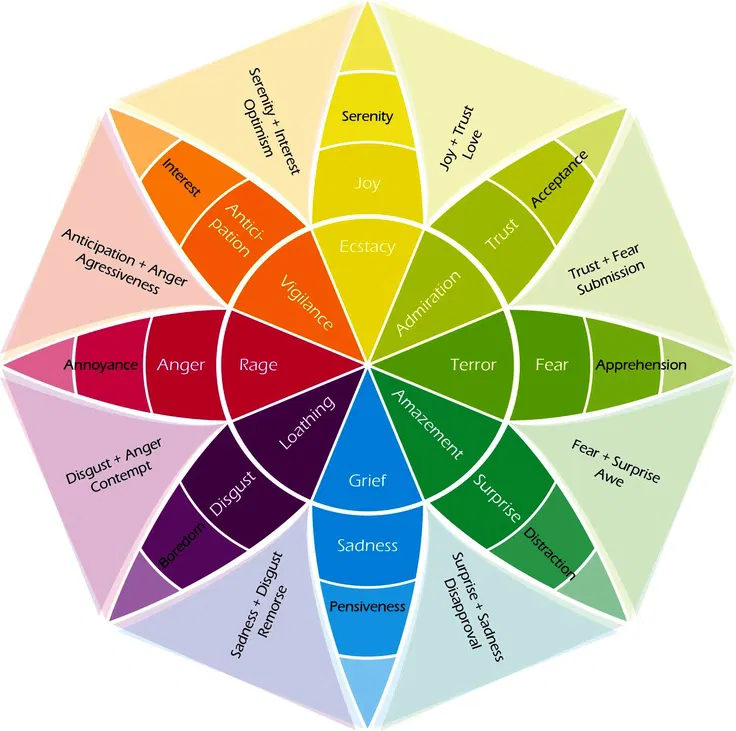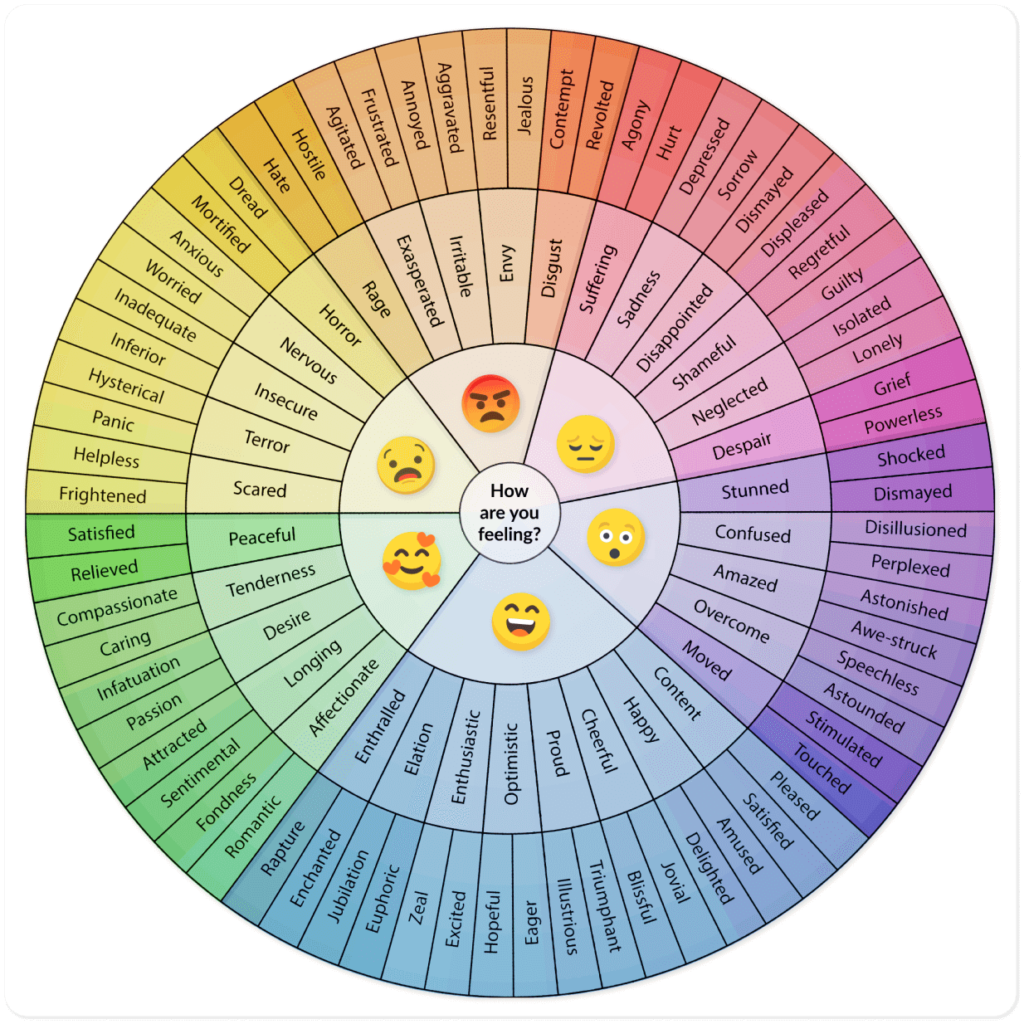
Meditation is a means to train the mind.
• Meditation gives us the tools to cope better with the difficulties that arise in life.
• Meditation is a means of transforming suffering into happiness.
• Meditation is a way of getting to know ourselves fully and accept ourselves as we are.
• Meditation teaches us to be in control of our thoughts and emotions, not allowing them to control us.
• Meditation teaches us to be the observer of our thoughts and emotions.
• Meditation teaches us concentration, to be able to organize our thoughts, and focus on a task without becoming distracted.
• Meditation teaches how to embrace feelings, without becoming overwhelmed.
• Meditation clears the mind so we can connect with our true self, our intuition, our spirit.
Meditation does not require you to sit and have no thoughts in your head or hold your mind so tightly that no thoughts can flow through, Quite the opposite, it allows the mindful flow of thoughts. You become the observer of your thoughts, watching them flow through your mind. What Meditation teaches you is not to become lost in those thoughts. Each thought is separate, it has a beginning and an end. The secret of meditation is to find the space where one thought ends before the other thought begins and rest your mind in that gap.
Let’s do a simple breathing meditation. We are going to close down our eyes and simply notice your breath in and breath out. After a few rounds of noticing the breath in and noticing the breath out, start to notice the moment at the end of the breath and the moment before you begin to breath out. Notice the moment when your breath finishes and the moment before you begin to breath in.
In those moments between breaths and in those moments between thoughts is the moment we aim to rest in when we meditate. The moment when everything is still will gradually extend with practice.
Sometimes we feel happy, sometimes we feel sad.
When you become an emotion, you have allowed the feeling to take you over. It is different to feel happy or sad, than be happy or sad.

If you feel the emotion, you can witness it; you can allow yourself to feel its full expression, but it doesn’t overwhelm you.
It’s really wonderful when you experience happiness for no reason. When you allow the feeling to fill you up you feel joy, light and bliss. You can sit in the feeling of joy but remain unattached to it. The aim is not to grasp on to the feeling because eventually the emotion will be gone and replaced by a different emotion.
Grief is another example. Grief is such a difficult emotion. It causes pain, we don’t like to feel like that, so we try to push the grief away. When you try to push painful emotions away, they grow stronger, to make us notice them. You can learn to let painful emotions, like grief in and nurture and care for your pain. The pain will no longer overpower you because you have acknowledged it. When you allow yourself to rest in the feeling, it is easier to cope with. We will go into this later in more depth.
We all relate to the same feelings:
• anger/peace.
• generosity/greed.
• envy/gratitude.
• despair/joy.
• desire/contentment.
• selfishness/selflessness.
• compassion/pity.
• hatred/love.
We all know what it is like to feel these emotions, though what caused the emotions comes from different stories, things we do and things that happen to us are different, but they bring up the same emotions. That’s why we can relate to each other and feel compassion for someone when something sad happens to them, or joyful when something good happens to a friend.
Meditation teaches us how to embrace feelings without letting them overwhelm us, it gives us the tools to feel emotions fully.
When we give ourselves permission to feel the bliss of happiness or the sadness of sorrow we learn not to be carried away by emotions.
We become the observer of emotions, thus allowing ourselves to embrace the human experience in a profound way.
We also learn to avert destructive emotions such as anger, greed and jealousy.
Changing what you think can change the way you feel. We don’t need to be helpless victims of unchangeable emotions, in fact, emotions are constantly changing. When you learn to control your mind, you have a better ability to understand and control your emotions and reactions. You don’t need to be buffeted along like a boat with no oars, allowing your mind and feelings to dictate your actions. You can take charge of your mind and your emotions.
It is not conducive to happiness and a feeling of well-being to listen to and believe destructive self-talk. Meditation teaches you to believe and have faith in yourself and allows you to blossom into a confident, happy, understanding person.

Things to know about emotions:
• You are not your emotions. You feel emotions.
• You are not your thoughts. You think thoughts.
• Emotions and thoughts are separate.
• What you think affects how you feel.
• Emotions are constantly changing.
• An emotion, whether it is positive or negative will change.
We tend to dislike change, we get comfortable with things staying the way they are, but change is the nature of phenomena, nothing is permanent. Clinging onto things that are only temporary is essentially unsatisfying. Meditation opens the mind to see change in all its wonder without fear.
To experience all that life has to offer, people need to push themselves to get out of their comfort zone.
Meditation is not easy, it is called ‘meditation practice’ because it takes practice. It is like learning a musical instrument, it takes devotion and dedication. Think of your mind like an instrument when you practice, holding it neither to tightly, nor too loosely. If you hold it too tight, the strings will break; if your mind is lazy, like a loose string on an instrument, it will not play.
You need your mind to be flexible and open to new thoughts and ideas. Holding rigidly onto old thoughts, emotions and beliefs will leave you unable to adapt to change, leading to suffering.
Meditation is the gateway to transforming suffering into happiness. Everything is impermanent. When you realize this, you are a step closer to discovering inner peace.
Sometimes unpleasant issues from the past may arise, the suppressed material that has been buried for quite some time can be scary, but exploring it is also highly advantageous. We all have traumas, but every time you face them, they heal a little more.
All these wonderful benefits come from meditation, but the true purpose of meditation is to awaken awareness and gain enlightenment or connect to the universal consciousness.
The premise of yoga is that we are all born divine, but we forget. Yoga helps us remember. Buddhism believes we are all born with Buddha nature, true nature or a good heart but it becomes obscured, like storm clouds cover a blue sky. The sky is still there – our true nature is always with us, but we fail to be able see it through the difficulties of life and our busy minds. If we can calm our minds, our minds become clear, and our true nature is revealed to us once again. Yoga and meditation clear your mind and reveal your true nature or true self.
True happiness is not gained from owning possessions, it comes from within. When you discover that you are perfect inside yourself, and you always have been. You are loved and valued just the way you are, a great sense of contentment, peace, joy and happiness will fill you and joy and happiness, contentment radiate out of you making the world around you glow and the people you meet feel happy. You find faith in yourself and discover that you are capable of achieving anything you can dream of in this life.
Close your eyes and clear away the thoughts and emotions to reveal the clear skylike nature of your mind. Any little thoughts that come like rippling waves into your calm mind are vritti. With practice, thoughts become ordered. The monkey chatter will stop, you will be able to guide your thoughts.
Meditation is learning to train your mind and become familiar with your mind. When thoughts are racing through your mind, they can drive you crazy, always making you do what they tell you to. You might not like what the thoughts are telling you, so you fight against the thoughts telling them to shut up. We can make friends with our mind by giving it the job of meditation. All those thoughts are happy because they are being organized by the monkey mind, the monkey is happy because he has the job of organizing the thoughts. Thoughts become calm and pliable; our minds become peaceful. When we are in charge of the monkey mind, we can employ the mind in a more useful way.
